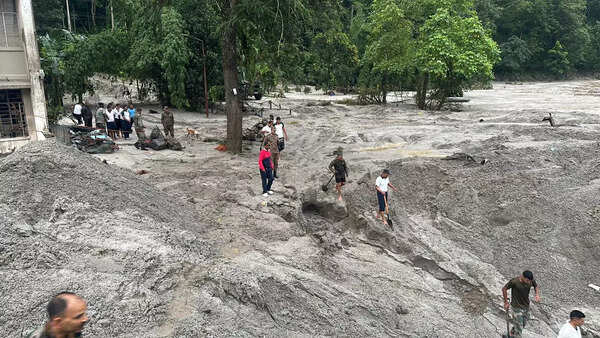[ad_1]
The flash flood, triggered by a cloudburst in the Teesta river in the early hours of October 4, caused widespread destruction in the state, affecting around 88,000 individuals. Sikkim, with a population of approximately 6.10 lakh people, has the lowest population among all states in India, as per the 2011 census.

Pakyong district has witnessed the highest number of casualties, with most of the recovered bodies found there. Out of the 26 bodies discovered in the district, 15 were civilians while 11 were members of the armed forces, according to the Sikkim State Disaster Management Authority (SSDMA). Additionally, four bodies were found in Mangan, eight bodies in Gangtok, and two bodies in Namchi, as reported in a bulletin by the SSDMA.
Neighboring West Bengal has also been affected by the tragedy, as the Teesta river carried several bodies downstream to the surrounding areas, officials stated.
Sikkim flash floods | 3rd Indian Reserve Batallion troops on their way to Mangan for rescue mission
Among the 76 individuals still missing, 28 are from Pakyong, 23 from Gangtok, 20 from Mangan, and five from Namchi. Currently, the state has established 20 relief camps where 2,080 people have sought shelter, as informed by the SSDMA.
According to the National Disaster Management Authority (NDMA), the flash floods might have been triggered by a combination of excessive rainfall and a Glacial Lake Outburst Flood (GLOF) event at South Lhonak Lake in North Sikkim.
[ad_2]
Source link





Join The Discussion